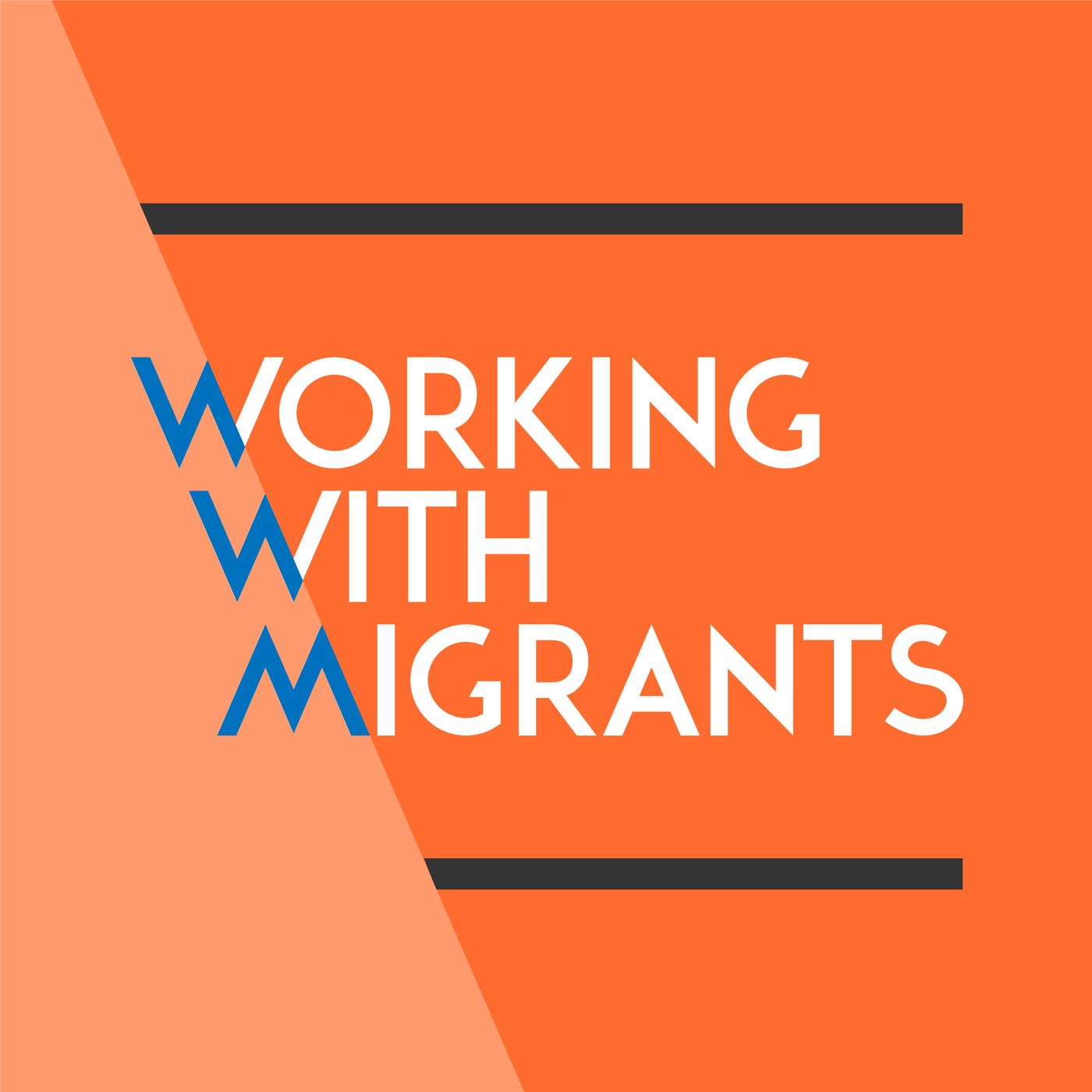Discover Working with Migrants
Working with Migrants

Working with Migrants
Author: FinInstLondon
Subscribed: 1Played: 0Subscribe
Share
© Copyright FinInstLondon
Description
This podcast series is all about the practice of working with migrant communities. London-based community artist Arji Manuelpillai meets inspiring people working with migrant communities in London and Helsinki. Together they discuss issues and challenges, share practical tips and ethical struggles.
8 Episodes
Reverse
This episode begins to unpack the idea of story as a commodity. How can we use migrant stories to effect change? What are the ethical implications of doing this? Interviewees include lecturer, research fellow for narrative research Aura Lounasmaa from University of East London, community development project officer Emma Gardiner from Praxis, Finnish script writer Kati Kaartinen and young migrants in London.Content clarificationThe Jungle (play)The Jungle was a play co-produced by the National Theatre and the Young Vic Theatre in 2017. It was an immersive performance about the people living in the Calais refugee camp, hoping to get to Britain.
In today’s episode we discuss language and consider the ways we can improve our practices when teaching language. I spoke to Julie Setchfield, an ESOL teacher based in Croydon and Jenni Alisaari, a teacher and language expert in Finland about what they believed were the challenges and difficulties when teaching a new language. Content clarificationESOL (department) English to Speakers of Other Languages, or English as a second language.
In today’s show I speak with Maurice Wren, the chief executive at Refugee Council UK. It’s an intriguing debate delving into thoughts on integration, understanding and the importance of refugee-led work. Content clarificationWindrush ScandalIn 2018, many British citizens of Caribbean origin lost their homes or jobs, were denied access to care or re-entry into the UK. Some were threatened with deportation and almost a hundred were deported. These events became known as the Windrush scandal.From 1948 to 1973, British subjects born in the colonies could move into the UK without a special permit or documentation, nor were they given any such documentation upon arrival. Come 2018, the same people could not prove they were British citizens with a right to live and work in Britain and use public services.The scandal showed that non-white Brits could be treated as second-class citizens. The then home secretary, Amber Rudd, was forced to resign as a result.Hostile environmentA policy created by Theresa May during her time at the Home Office (approximately 2012-2016) and by and large continued by her successors. The policy aim was to create a hostile environment for illegal immigrants. In practice, as in the case of the Windrush Scandal, it created a hostile environment for ethnic minorities and all immigrants.
In today’s show we talk about burnout. If you are a practitioner working with migrant communities you may have experienced burnout or emotional fatigue. I speak to Alex Evans, artistic director at Kazzum Arts. Kazzum have invested in their pool of practitioners, providing them with the tools for resilience and better mental health when working with migrant communities. I then speak with Becky Hall, a drama and movement therapist to discuss how she deals with the strain of working within this sector.
What can we learn from some of the business community working with migrants? Interviewees include Anne Badan, founder and CEO of The Shortcut. The organisation encourages more people from diverse backgrounds to consider creating or working for a startup in Finland. My second guests come from Start-Up Refugees. Mustafa Abdulameer and Camilla Naatus have created an online platform for migrant communities connecting them with job opportunities in Finland.
Today’s show discusses the role of the arts when working with migrant communities. How can we use art to help us campaign for change within our sector? What are the therapeutic effects of art? How can art create a space for migrant voices? I interview artistic director Jussi Lehtonen from touring stage of Finnish National Theatre. We also hear from Arts Development Manager Gini Simpson at Music in Detention as she talks to us about music and its place within detention centres in the UK.Content clarificationDetentionImmigration detention is the practice of holding people who are subject to immigration control in custody, while they wait for permission to enter or before they are deported or removed from the country. It is an administrative process where decisions are made by an immigration official, not a court or a judge. Unlike most other European countries, there is no time limit on immigration detention in the UK.
In today’s episode we discuss practitioners working with migrants. We look practically at some of the skills we need and how we can improve our practice. I speak to drama and movement therapist Becky Hall, I meet up with executive director Lauren Irving from Kazzum Arts, head of relationships Anna McDonald from Play for progress, programme manager Amy Spiller from Coram and project manager Irma Sippola from Migrant Youth in Helsinki. We then hear from applied theatre practitioner Andrea Tuijten and Jonathan Barnes, one of the founders of E4D charity. If you are a practitioner working with migrant communities this should be a practical and useful discussion for all.Content clarificationSixth formSixth form is the equivalent of high school, or the last two years of secondary education, at the end of which students sit their final exams (A-levels), with 16 to 18-year old students




